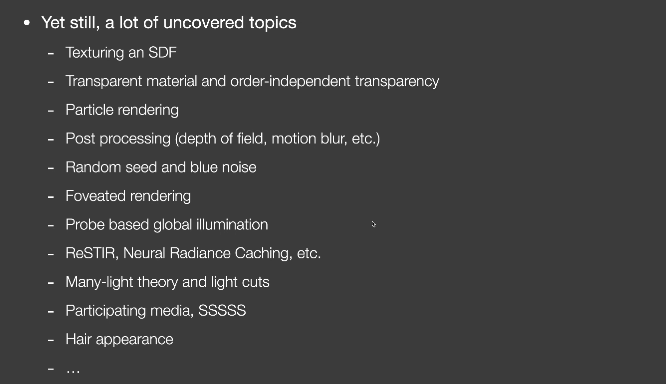A Glimpse of Industrial Solutions
Anti-aliasing
Temporal Anti-Aliasing(TAA)
Why aliasing
- 光栅化中逐像素采样率不足
- 因此,终极解决方案是使用更多样本
TAA
- 复用上一帧的样本
- Almost exactly the same as in RTRT
Notes on AA
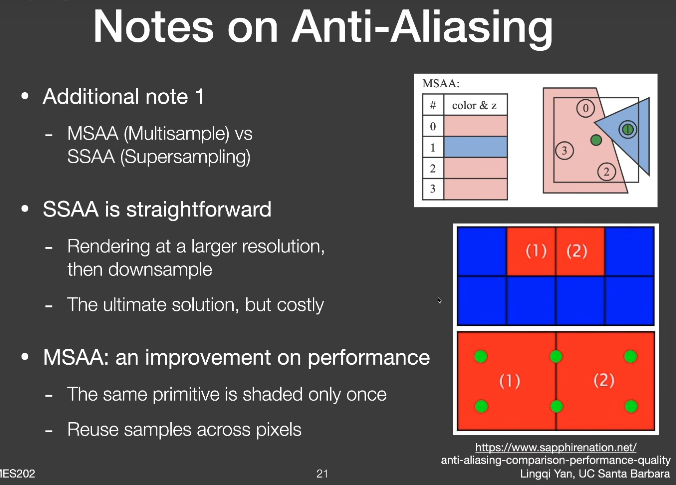
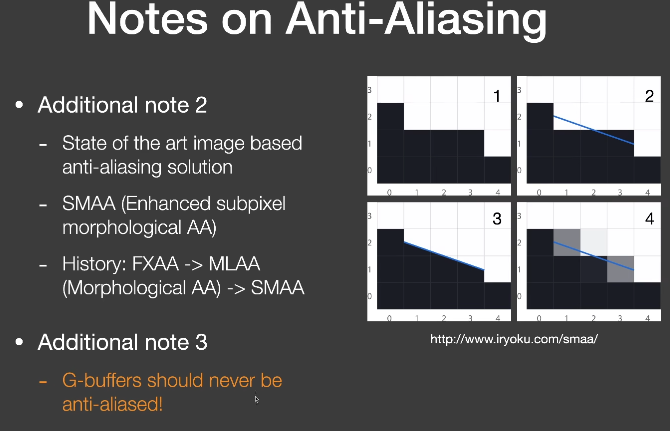
Temporal Super Resolution
- Super resolution(super sampling)
- Literal understanding: increasing resolution
- Source 1(DLSS 1.0): out of nowhere/completely guessed
- Source 2(DLSS 2.0): from temporal information
- Key idea of DLSS 2.0
- TAA-like application
- Temporally reuse samples to increase resolution
Super sampling and DLSS
- DLSS2.0 Main Problem
- Upon temporal failure, clamping is no longer an option
- Because we need a clear value for each smaller pixel
- Key is how to use temporal info smarter than clamping
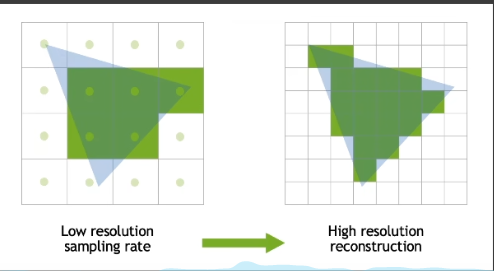
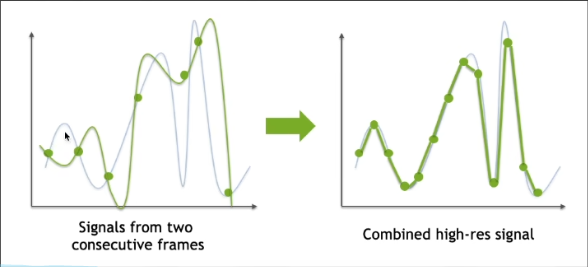
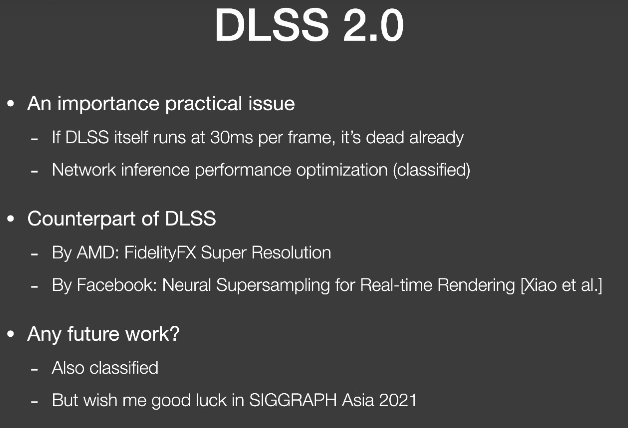
Deferred Shading
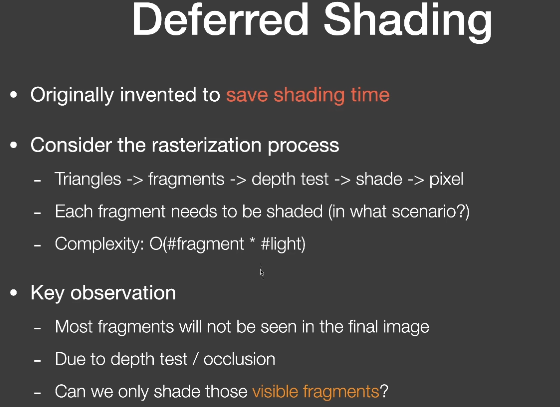
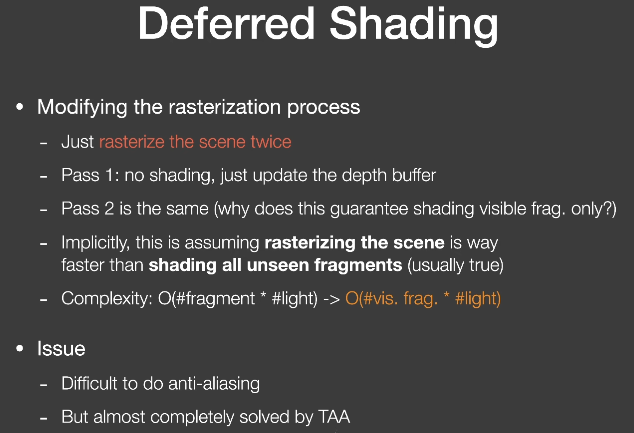
Tiled Shading
- Improvement: tiled shading
- subdivide the screen into tiles
- Key observation
- Not all lights can illuminate a specific tile
- Mostly due to the square falloff with distance
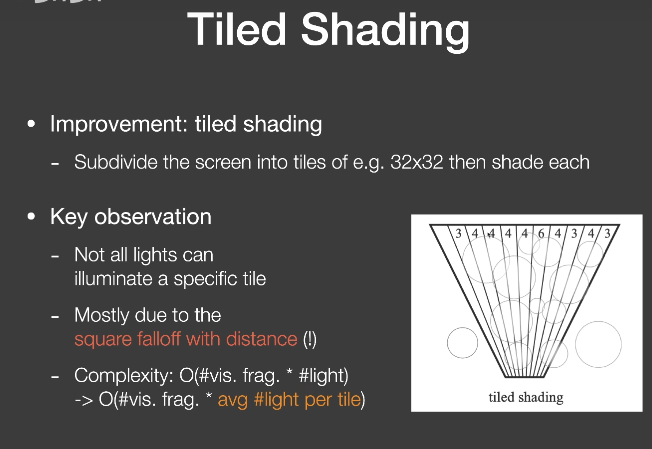
Clustered Shading
除了屏幕空间的分块,还要在深度上分割
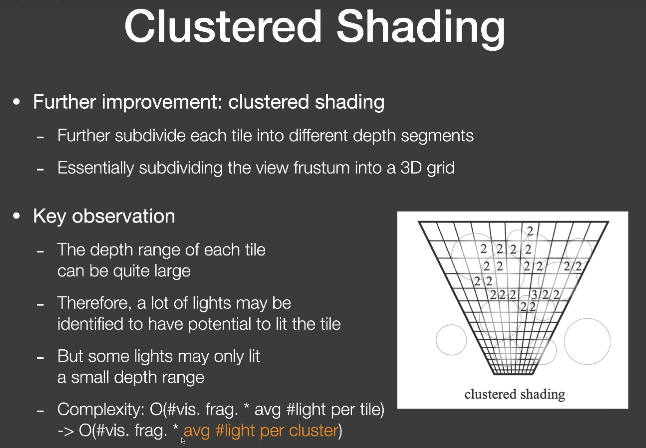
LoD solutions
- Choosing the right lod to use can save computation
- The use of multiple lod
- Called “Cascaded” by the RTR industry
- EX:
- Cascaded shadow maps
- Cascaded LPV
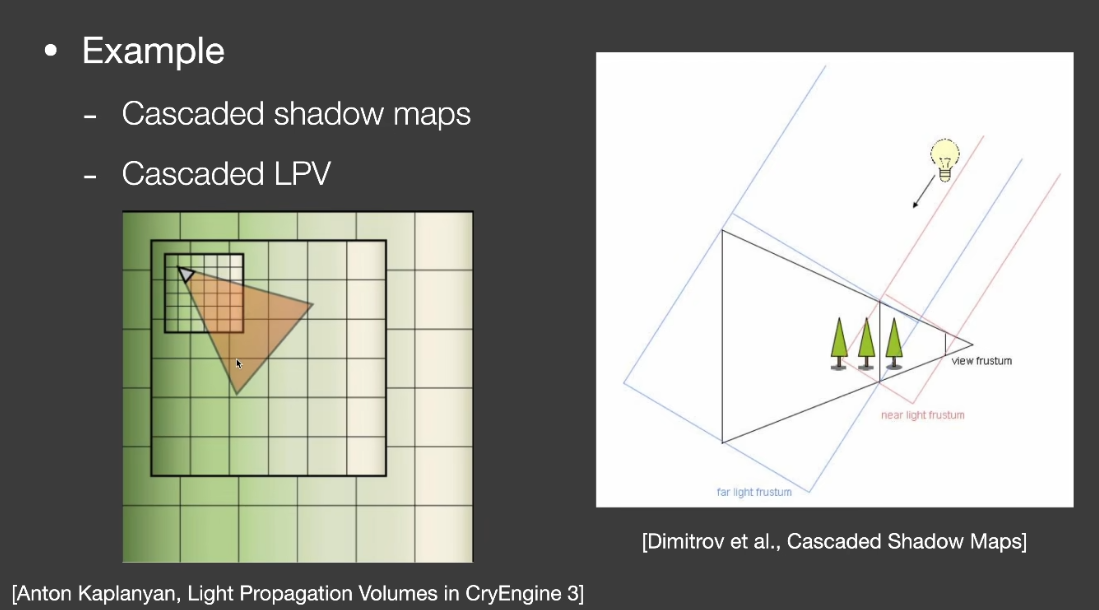
- Key challenge
- Transition between different Levels
- Usually need some ==overlapping and blending== near boundaries
- Another Example: Geometric LOD
- 生成一套不同三角面数的简化的模型
- 基于相机距离选择合适的物体(or part of obj, s.t. no triangle will be larger than a pixel)
- Popping artifacts(突然出现)——leave it to TAA
- Nanite in UE5(动态选取Lod)
- Technical difficulties
- 不同的部位使用不同层级,如何处理接缝cracks?
- 动态加载(load)和调度(schedule)不同层级,如何最好地利用缓存(cache)和带宽(bandwidth)?
- Representing geometry using triangles or geometry textures(几何纹理)
- Clipping and culling for faster performance
GI Solutions
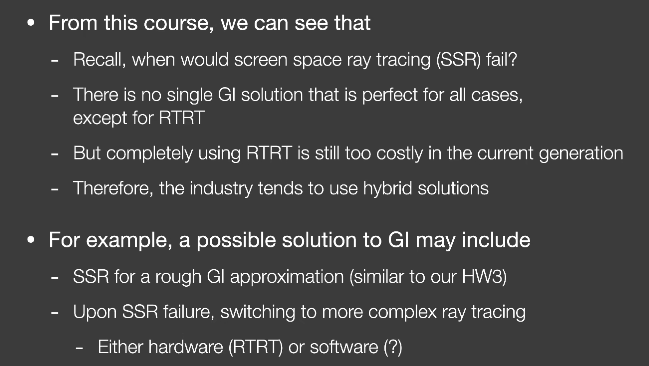
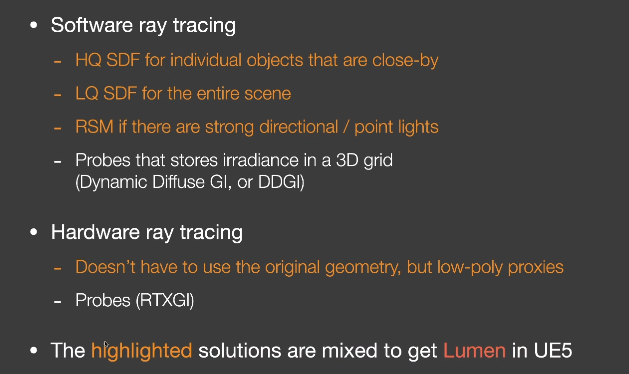
Uncovered Topic
